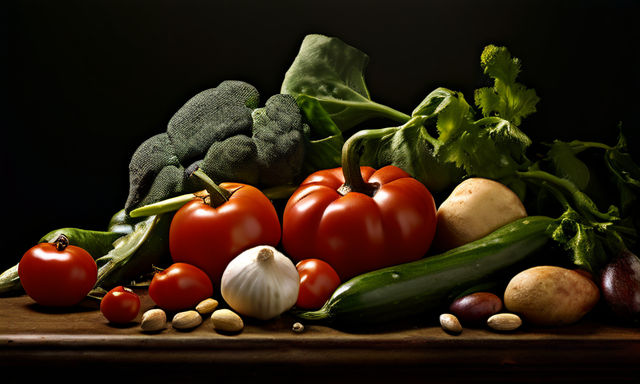Top Vegetarian Protein Sources Video
Protein is a vital component of any diet, essential for muscle repair, hormone production, and overall cellular health. For vegetarians, finding diverse and sufficient sources of protein can sometimes be a challenge, especially when transitioning from a diet that includes meat. However, a variety of plant-based and dairy options are not only rich in protein but also provide numerous other health benefits. Here’s a look at some of the top vegetarian protein sources that can help you meet your daily protein needs.
Why Focus on Protein in a Vegetarian Diet?
Protein is essential for muscle repair, hormone production, and the overall functioning of our bodies. Incorporating a variety of protein sources is key to achieving a balanced diet, especially in a vegetarian lifestyle where omitting meat could lead to potential nutritional gaps.
1. Tofu
- Protein Content: 12.5g per 100g
- Benefits: Tofu, made from soybean curds, is incredibly versatile and can take on many flavors, making it perfect for a variety of dishes from stir-fries to smoothies.
2. Mixed Beans
- Protein Content: 7g per 1/2 cup
- Benefits: Beans are not only high in protein but also fiber, which helps in digestion and prolonged satiety. They are great in salads, soups, and stews.
3. Eggs
- Protein Content: 12g per 2 eggs
- Benefits: Eggs are a complete protein, containing all nine essential amino acids, and are one of the most bioavailable sources of protein.
4. Pulse Pasta
- Protein Content: 21.5g per 100g
- Benefits: Made from legumes like lentils, chickpeas, or peas, pulse pasta is a fantastic high-protein alternative to traditional pasta.
5. Cottage Cheese
- Protein Content: 15g per 1/2 cup
- Benefits: Cottage cheese is low in fat and high in casein, a slow-digesting dairy protein that keeps you full longer.
6. Nutritional Yeast
- Protein Content: 6g per 2 tablespoons
- Benefits: This cheesy-flavored condiment is fortified with vitamins, including B12, which is crucial for those following a vegetarian diet.
7. Frozen Edamame
- Protein Content: 12g per 100g
- Benefits: Edamame beans are young soybeans and provide a solid hit of protein along with fiber, iron, and calcium.
8. Protein Shake
- Protein Content: 30g per 375ml
- Benefits: Protein shakes can be an efficient way to meet protein intake goals, especially post-workout, with plant-based powders available from pea, hemp, and rice protein.
9. Edamame Spaghetti
- Protein Content: 15g per 100g
- Benefits: Similar to pulse pasta, edamame spaghetti offers a high-protein, gluten-free alternative to regular pasta.
10. Greek Yogurt
- Protein Content: 20g per 1 cup
- Benefits: Greek yogurt is thick, creamy, and has nearly twice the protein of regular yogurt, making it ideal for breakfast bowls and smoothies.
11. Roasted Fava Beans
- Protein Content: 6.5g per 25g
- Benefits: These are a crunchy, portable snack that's not only rich in protein but also dietary fiber and beneficial antioxidants.
12. Soy Milk
- Protein Content: 8g per 1 cup
- Benefits: Soy milk is a staple for many vegetarians and vegans, offering a close nutritional profile to cow's milk, including being a good source of protein, vitamins, and minerals.

Benefits of Diverse Protein Sources
Incorporating a variety of protein sources in a vegetarian diet not only ensures a wide range of essential amino acids but also introduces different flavors and textures to your meals, making your diet more enjoyable and sustainable. Each of these protein sources comes with additional nutritional benefits, such as fiber, vitamins, and minerals, that support overall health.
Potential Disadvantages of Relying Solely on Vegetarian Protein Sources
While a vegetarian diet offers many health benefits, there are some potential drawbacks to relying solely on plant-based protein sources:
-
- Complete Proteins: Not all vegetarian proteins are complete, meaning they don't always provide all the essential amino acids your body needs. Animal proteins typically contain a complete amino acid profile. Vegetarians need to be mindful to combine different protein sources to ensure they get all essential amino acids.
-
- Bioavailability: The body may not absorb plant-based proteins as well as animal proteins. Factors like antinutrients in beans and grains can inhibit the absorption of minerals and proteins.
-
- Higher Caloric Intake: Some plant-based protein sources come with higher calories and carbs. For instance, to match the protein content of a chicken breast, one might need to consume larger quantities of quinoa or beans, which are also high in carbs.
-
- Vitamin and Mineral Deficiencies: Vegetarian diets can sometimes result in deficiencies in nutrients like iron, vitamin B12, vitamin D, omega-3 fatty acids, and zinc, which are more readily available in animal products.
Conclusion
A vegetarian diet can be rich in protein with careful planning and inclusion of diverse protein sources. From the firm texture of tofu to the creamy richness of Greek yogurt, vegetarian proteins are versatile and can be included in every meal to ensure you meet your dietary needs. Whether you’re a seasoned vegetarian or just starting out, these protein-rich foods can help maintain a balanced and nutritious diet.
Disclaimer: This blog post is for informational purposes only and does not constitute medical advice. Always consult with a healthcare professional before making significant changes to your diet, especially if you have specific health conditions or dietary needs.
Ready to level-up?
Create meal plans 10x faster, follow up with your clients through our mobile app, and never struggle with meal planning or recipe management again.